We reviewed the Ed Dupas album “A Good American Life” in August 2015 and Allan was extremely impressed, picking out “Flag” as one of his top five songs of the year. Our good friends at Gpromo asked Ed to contribute to the High Fives feature and he pulled out all the stops with this insight into his most listened-to albums. Many thanks to Ed for this great piece and a wonderful album.
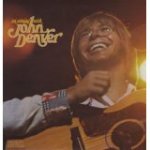 John Denver – “An Evening with John Denver” (Vinyl)
John Denver – “An Evening with John Denver” (Vinyl)
It was the mid-to-late seventies and we had a Curtis-Mathes television with a turntable and two speakers that flanked the screen on either side, all built into a (sort of) fancy wooden cabinet. It was a simpler time for me and, I suppose, pretty much everyone living back then. I’d slide the large wooden living room door closed whenever I had the chance and listen to records hour after hour. “An Evening with John Denver” was my first album of choice; my first favorite. It was the album I reached for again and again at the tender age of seven.
The album faced stiff competition as my parents had pretty good tastes in music. Don McLean’s “American Pie” and Simon and Garfunkel’s “Concert in Central Park” were just a couple of the others in our collection, and they exerted a strong gravitational pull. Although I loved those records, “An Evening with John Denver” captured my imagination in a different way. My favorite song was “The Eagle and the Hawk” and I would listen to it over and over again.
I still have the album on vinyl…man, John Denver was in his prime when the record was recorded. I’ve always considered this album to be the zenith of his career.
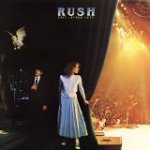 Rush – “Exit Stage Left” (Cassette Tape, Hi-Res Digital)
Rush – “Exit Stage Left” (Cassette Tape, Hi-Res Digital)
I bought this album on cassette as a teen, it was such a random purchase, so careless really. I couldn’t have known then–they had me before I even saw them coming–one minute I was a normal teen and the next I was a Rush fan. Alright, I suppose that’s not quite honest…normal teens don’t become Rush fans. Suffice to say, one minute I was something other than a normal teen and the next I was a Rush fan.
I’m not hyper-crazy or anything, sure I can probably recite most lyrics pre-1992 by heart, but I’ve only seen the band play live nine times, which in the Rush-world makes me a seasoned fan. Those Canadians, there’s gotta be something in the water, or maybe it’s something not in the water…?
“Exit Stage Left” was my first and has remained my favorite Rush record. My top track is “Red Barchetta”…but you gotta let it play through to the end of “YYZ”, that’s the trick.
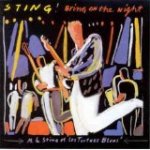 Sting – “Bring On the Night” (Cassette, Compact Disc)
Sting – “Bring On the Night” (Cassette, Compact Disc)
When I honestly consider the five records I’ve listened to over and over again–and still listen to—“Bring On the Night” has to be on the list. And why not? Branford Marsalis, Omar Hakim, and on and on, the band is grand down to the man (or woman). It was a double-cassette album, somewhat rare in that respect…and I wore those tapes out.
Bring On the Night” is a hypnotic collection of jams disguised as songs. When you listen closely to the record it’s almost as if the band is breathing, their energy ebbing and flowing. I remember one particularly tragic night in college when I was beyond sleep, I just lay awake all night with “Bring On the Night” record repeating. Thankfully I’d upgraded to CD format by then.
“I Burn for You” is my favorite song on the record, to me it’s a great example of what can happen when a group of individual musicians gel and temporarily evolve into one, albeit short-lived, entity.
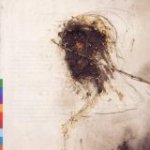 Peter Gabriel – “Passion” (Compact Disc)
Peter Gabriel – “Passion” (Compact Disc)
Originally recorded as the soundtrack for Martin Scorsese’s “The Last Temptation of Christ”, I’ve gotten more mileage out of “Passion” than any other album. In college it would play over and over again as I was writing papers or reading those God-awful tomes they call textbooks. Sometimes I would be lost in thought for hours with “Passion” dutifully playing in the background, never demanding too much attention, but when I’d stop to listen there was always something amazing to hear. I love that aspect of this record. I don’t, however, recommend it for sleeping.
I worked full-time at a cafe in college (a barista in the grunge era, no lie) and I’d let “Passion” play as the house music from time to time. It consistently got more interest than anything else. It’s a righteous record, a seeker’s record, and it’s my “going deep” album to this very day. It is my goto soundtrack when I want to power up the world-wide-web and crawl down some esoteric or scientific wormhole (and seriously…that does happen a great deal…if I wasn’t writing this right now that’s totally what I’d be doing). I set the album to repeat, press play, and let it flow together as an unbroken circle.
My favorite track is number 7, “A Different Drum”. A predictable choice, but unavoidable, really.
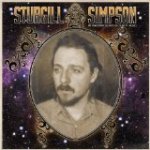 Sturgill Simpson – “Metamodern Sounds in Country Music” (Vinyl, Hi-Res Digital)
Sturgill Simpson – “Metamodern Sounds in Country Music” (Vinyl, Hi-Res Digital)
Alright, so this is a new record and, admittedly, it’s not one I’ve listened to for decades, but it’s a classic record; it was the day it was made, the world just didn’t know it yet. It’s a record that I will listen to for decades to come, so it rounds out the top 5 nicely.
Something tells me this record was a hard-fought accomplishment for Sturgill. It’s a striking concept album (with love being the concept). “Metamodern…” is a work of shared introspection in which an honest guy–a self-described ‘van driver who plays music’–gets into some seriously weighty areas of science, evolution and mysticism. With references to Stephen Hawking’s “A Brief History of Time”, Pierre Teilhard de Chardin’s “The Phenomenon of Man”, and numerous esoteric traditions, Sturgill shows himself to be an interestingly learned man (and it’s not the kind of stuff they teach in school). You can’t just write an album like “Metamodern…”, you have to live it, become it. As the record states, ‘you have to let go so the soul may fall’.
“Metamodern…” is a masterpiece recorded on a $4000 working budget. In the music industry that’s not a shoestring budget, that’s a fraction of a shoestring budget. There are some of us out here that need to believe that kind of thing is possible…that a true artist, motivated by inspiration and his or her desire to share their unique gifts with the world can find a way to do that, despite all the obstacles. If this sort of thing appeals to you like it does me I highly recommend “Metamodern Sounds in Country Music”. Nashville has consistently ignored Sturgill, but the people love him. I’m OK with that, and I’d guess that Sturgill is too. I don’t think he had Nashville in mind when he made this record.
I highly recommend track 8, “Just Let Go”. ‘Woke up today and decided to kill my ego…’
And the people love it…it’s an interesting time to be alive.
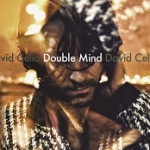 It’s interesting that Toronto-based guitarist and songwriter David Celia has chosen “Double Mind” as the song and central theme for his fourth album; it suggests a dichotomy in modern life that might even extend as far as schizophrenia but, for me, the album conjures up a totally different duality. In the old football (or soccer) cliché, this one’s a game of two halves, which splits almost exactly down the middle. If it was split over two sides of vinyl, I would very happily listen to side one and ignore side two completely. So what is it about this album that provokes such a mixed reaction?
It’s interesting that Toronto-based guitarist and songwriter David Celia has chosen “Double Mind” as the song and central theme for his fourth album; it suggests a dichotomy in modern life that might even extend as far as schizophrenia but, for me, the album conjures up a totally different duality. In the old football (or soccer) cliché, this one’s a game of two halves, which splits almost exactly down the middle. If it was split over two sides of vinyl, I would very happily listen to side one and ignore side two completely. So what is it about this album that provokes such a mixed reaction?
The album opens with “Welcome to the Show”, a West Coast, country-rock tinged song which demonstrates Celia’s songwriting and features some lovely guitar work. It’s a scene-setter and it gives a pretty good idea of what’s coming on the first half of the album. Vocally, he has echoes of Jackson Browne or Neil Young and the songs are rooted firmly in singer-songwriter territory dealing with the struggles of modern life (“The Grind”), looking for a soul-mate (“Speak to Me”) and the schism caused by multi-tasking (“Double Mind”). “Thin Disguise” which deals with putting on a brave face after a break-up has hint of Springsteen’s “Kitty’s Back”, particularly the walking bass line, and the album’s first half is high-quality, inventive, introspective songwriting with musical performances to back it up. The only discordant tone is “Tongues”, which moves away from relatively serious territory into something more light-hearted and contains the clunky line ‘Don’t be shy with your region of nether’; it’s not the album’s finest lyrical moment.
The light-hearted (and lightweight) “Drunken Yoga” and “Go Naked” (which mashes up Elton John’s “Crocodile Rock” with Beach Boys harmonies) sound out of place on a predominantly serious album, but not as much as “Princess Katie” which is David Celia’s “Frog Chorus”; it is possible to take the Beatles comparisons too far. The album’s closing track, a German version of the opener doesn’t really add much to the listening experience, either. It’s not all unbridled levity in the second half of the album; “Want You to be Happy” is a break-up song and the album’s longest song, “Smile You’re Alive” again has a seventies singer-songwriter feel ( a bit Neil Young, a bit Simon and Garfunkel’s “America” maybe) although the discordant piano coda feels a little out of place.
Listening to “Double Mind” as an entity is a frustrating experience as it bumps along from the sublime to, well, “Princess Katie”. It’s obvious that David Celia is absolutely fizzing with musical ideas and wants to get all of them out there but I’m not convinced that they all fit together happily here. You could easily cut out the more lightweight songs and transform this into a four-star album with nine or ten very strong songs.
“Double Mind” is out on August 21 on Seedling Music and David will be touring the UK in November.
So it’s time to move on to the second half of the seventies and the early eighties and we start off with the P-word.
AM – How did you react when punk came along then?
PB – Loved it; I actually loved it and weirdly I wanted it to do what it wanted to do because up to that point my heroes were not punk at all and the very antithesis of punk. I wanted it, because I would have been about seventeen then, leaving school, and just starting to think about playing music in pubs and got a band together; well, actually, I got a duet together with Martin Gore (yes, that Martin Gore) and we were trying to write songs. He liked, I don’t know who he liked, I think it was Simon and Garfunkel at the time and he did like Sparks and David Bowie. I liked David Bowie but I wasn’t sure, I didn’t trust him which now, I think, was probably wrong, but I didn’t get the idea that superficial and chameleon-like was his theme. At the time I thought ‘I don’t believe he really means this’ and at that time it had to mean it and that meant a lot to me and I was probably wrong and Gore was probably way ahead of me on that. So we wrote songs which I tried to make melodic and soulful and he wanted to make strange and weird. I taught him how to play guitar and he was a better guitar player than he is, well, what he’s ended up as. We were writing some interesting songs at the time and we went out as this strange band and the punk happened, halfway through this band.
I had hair like Marc Bolan at the time and he had a bubble-cut but we found ourselves on these punk bills. I’d started writing a few songs as well, so I found myself as a solo person on these punk bills for no reason whatsoever because I had nothing to do with punk musically but I liked the fact you could play somewhere and there was energy there and I started listening to other people who were playing and I thought I’ll have a listen to this, so I went along to see some bands. I saw The Buzzcocks, The Ramones and The Talking Heads when they first came over, I saw The Clash once and there was a big fight so I didn’t hear much of The Clash, but that wasn’t the point in a way. I tended to like a what went on afterwards in the post-punk era; I got really well into that because there seemed to be room for bands like Television and The Fall with some of their lyrics which, at that point, were suddenly taking over for me and I went from trying to write songs like James Taylor with three words in them to two chords and “War and Peace” over the top of them; “Ulysses” or something like that, but then there were bands that that was feeding into at the time like The Fall. I certainly got heavily into The Fall and the more experimental bands but I would still listen to “The Modern Dance” by Pere Ubu and then go home and listen to “Mud Slide Slim and the Blue Horizon” by James Taylor because I think that’s what it’s about; they’re not dissimilar in the sense that the person who’s responsible for the music does what he wants it to do. There’s too many categories, in a way.
AM – I know Television, “Marquee Moon”, everybody claims now that it’s always been their favourite album and at the time…
PB – They’re fucking lying; I tried to get everyone into that and a couple of people got it, but for once the rabid NME press was right about this.
AM – For me it’s still one that I’m happy to get the vinyl copy out and stick it on the turntable.
PB – It is actually an album I can listen to at any time and that’s a rare thing. Sometimes, even your favourite albums you think ‘I’m not in the mood for that’, but I can be depressed, I can be happy, I can be whatever, but when Television comes on, that’s it.
AM – So, that was punk, what about what came after that.
PB – Punk was exciting and I was involved in the energy of it; everywhere you went there were gigs. I sounded like Leonard Cohen at that time but anything went and that was the beauty of it. I wore flares and had long hair at the punk gigs I did and it was, sort of, ok. You’d get comments, but that was sort of the point; wait until Dexys Midnight Runners sing about ‘you’re so anti-fashion, wear flares”. You could do anything you liked, it was sort of Dadaist spirit. It was very early on when the fashion thing kicked in, the Kings Road punks, and it was weird because I felt like I’d transcended that because I hadn’t changed. I didn’t even cut my hair so I was like David Crosby amongst the punks.
AM – So presumably when the synthesisers kicked in that wouldn’t really have been your thing.
PB – When the post-punk thing happened, I used to like some of the bands that became known as Krautrock, Can, Neu and the newer ones as well, Deutsch Amerikanische Freundschaft and Einsturzende Neubauten who were pure noise and distortion and the English versions of that like Cabaret Voltaire; I loved all of that. I thought there’s a synth thing going on and Martin got into it, so he buggered off and did Depeche Mode. Suddenly it turned into this really twee pop with no substance. I don’t hate pop music but I thought, with everything he knew, and the stuff he liked, I thought he would have gone towards Throbbing Gristle rather than this thing that happened, which seemed like it was going to be over in five minutes. For all I know he’s now a multi-millionaire and I’m sitting in a pub in Leigh.
AM – It’s a general thing that innovations like that come along, people make really good music and then somebody grabs bits of it for the mainstream and just dilutes it.
PB – That’s always happened. Bob Dylan wouldn’t have been anywhere if it wasn’t for The Byrds; fabulous as that was, I’d rather hear Dylan. I’m probably alone in the world in preferring “All Along the Watchtower” by Bob Dylan to the Hendrix version, even though I like Jimi Hendrix. I’m alone, even Bob Dylan said it’s a better version.
AM – Dylan’s songs have been interpreted by a lot of people; are they better versions or are they different versions?
PB – They’re different versions. Sometimes you can say they’re better versions but the thing I always try to get away from is ‘Dylan’s a fabulous songwriter and an icon of the twentieth century but he can’t sing’. So that means that if Judy Collins or some such does a version of “Idiot Wind”, it will be better, de facto, because she can sing. I could not disagree with anything, outside of UKIP, more vehemently than that. Bob Dylan and Sinatra are probably the best vocal stylists of this millennium. The reason I say that is because you try to play a Bob Dylan song and sing it and not sing a bit like Bob Dylan, not phrase it like him. The same with Sinatra, once you’ve heard “You Make me Feel So Young”, you try and sing that differently. Put your own slant on that; you can’t.
AM – I play and sing badly but I try Dylan songs like “I Shall be Released” and it’s always going to sound like Dylan.
PB – The Band did that; they’ve got some great singers in that band, and it sounded like Dylan; they couldn’t change the phrasing at all. You can sing it in a bland way or you can over-sing it; my worst nightmare is that I’ll wake up and “Positively Fourth Street” is covered by Mariah Carey. She would do it and you can guarantee you would have a queue of people saying ‘Oh, at last this song has been realised by a true singer’, but I would hunt her down and you’d see me on the Six O’Clock News if that happened.


